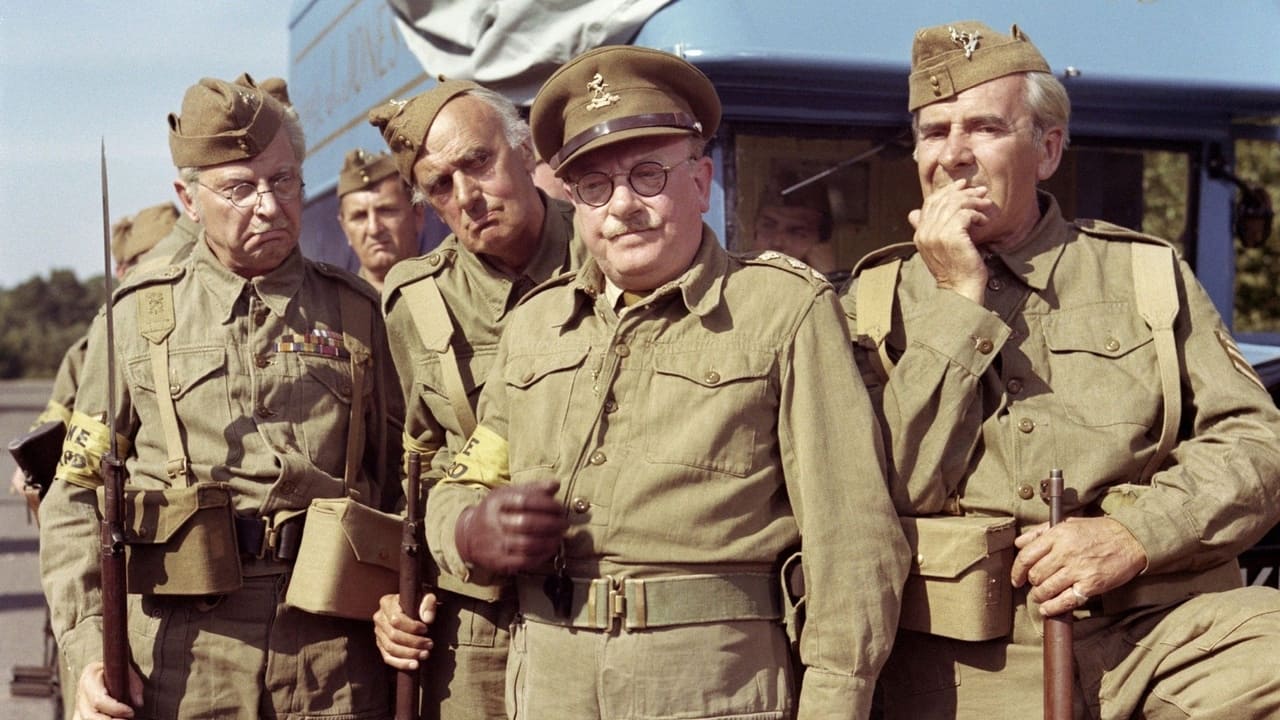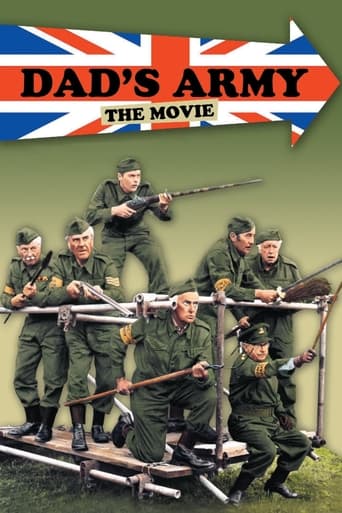

Based on the BBC comedy that began in 1968 and ran for nine years, this feature released by Cloumbia Pictures is basically a retelling of a few of the early episodes of the series but with a new ending. The TV cast recreate their roles for the big-screen, and as other reviewers have said, it is the best of the spin-off films of British TV comedies of that era. The regular cast are ably supported by some great guests actors, such as the late,great, beloved Bernard Archard as General Fullard, Michael Knowles-who had appeared in the series as military officers, Fred Griffiths as a cheeky steeplejack, Liz Frazer replacing Janet Davies of the TV series, as Mrs Pike and a small but nice role for John Baskcomb as the Mayor of Warmington. Dr Who will remember him for his role in Terror Of The Autons. A lovely recreation of the period is created by Terry Knight art department work and the period feel is enhanced by a wonderful music score from the under-rated Wilfred Burns, who as well as capturing the sound of late 30's/40's dance band also provides dramatic cues and a delightful 'dusk' theme as (SPOILER ALERT) as the Captain, Wilson and Jones ride the General's horse back to camp. The cue is a mixture of the period's slow dance/jazz band and woodwind to evoke a 'Crossing the prairie' feel. There are some beautiful nighttime and day-for-night shots courtesy of Terry Maher's photography. What a shame he did not move into major features.
... View MoreIm a die hard Dads Army fan and nothing will ever change that. I got all the tapes, DVD's and audiobooks and every time i watch/listen to them its brand new. The film. The film is a re run of certain episodes, Man and the hour, Enemy within the gates, Battle School and numerous others with a different edge. Introduction of a new General instead of Captain Square was a brilliant move - especially when he wouldn't cash the cheque (something that is rarely done now).It follows through the early years of getting equipment and uniforms, starting up and training. All in all, its a great film for a boring Sunday afternoon. Two draw backs. One is the Germans bogus dodgy accents (come one, Germans cant pronounced the letter "W" like us) and Two The casting of Liz Frazer instead of the familiar Janet Davis. I like Liz in other films like the carry ons but she doesn't carry it correctly in this and Janet Davis would have been the better choice.
... View MoreThe film adaptation of Dad's Army exemplifies war as almost a joyous farce, and thus far removed from reality.It is in this film that Dad's Army illustrates how the Home Guard was a propaganda manoeuvre brought about as a means to induce a sense of patriotism among the British people. Therefore all Dad's Army had to defend the country was indeed propaganda, and little else.The propaganda induced patriotism has subsequently been undermined by the Hollywood hijacking of this piece of Britain, which ironically the Nazi's did not succeed in doing.I like the fact that Auther Low's character points out that it was in fact the Nazi's Britain fought against, thereby indicating that the German people were as much victims as us Brits in World War Two.As for the comedy aspect of the film, it is improved upon for Columbia pictures. Left to the BBC it would look more amateurish.Overall, an interesting look at how patriotism via propaganda roused the British spirit during WW2 for the purpose of defence. But what was being defended, and for what purposes, and for whom? These are what begs the questions.
... View MoreThe second in director Cohen's trilogy of Second World War comedies (the others being Till Death Do Us Part' and `Adolf Hitler - My Part In His Downfall') is a film version of the BBC's long running (and much loved) situation comedy. Like most transfers of television shows, this movie suffers from an absence of plot and is more a collection of sketches. Some of which work better than others for example the scene where a high ranking army officer floats down a river is a memorable, surreal moment.The joy of this movie is it's representation of a past that probably never existed and an England which is defined by picturesque countryside and the chance it offers to see veteran scene-stealers such as John Le Mesurier given their biggest film roles. Arthur Lowe is superb as Captain Mainwaring, a bungler, who, when the chips are down, displays great courage and saves the day (the climax is probably the character's greatest moment).Episodes of the television series are of course funnier but as an introduction to a British legend, you cannot find anything better.
... View More